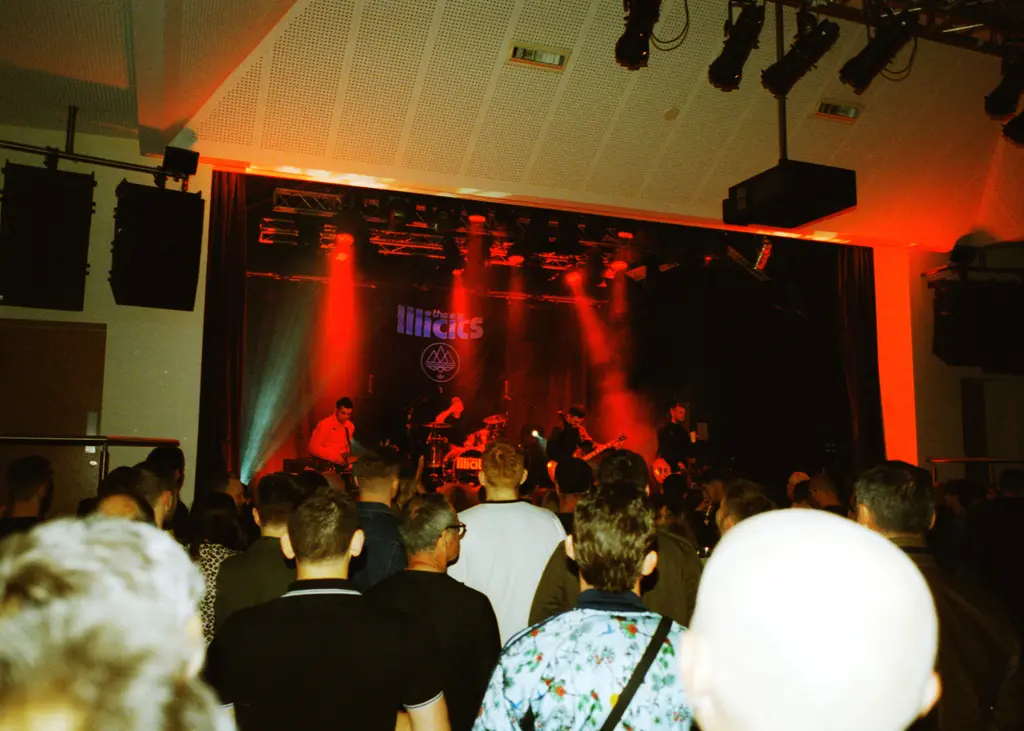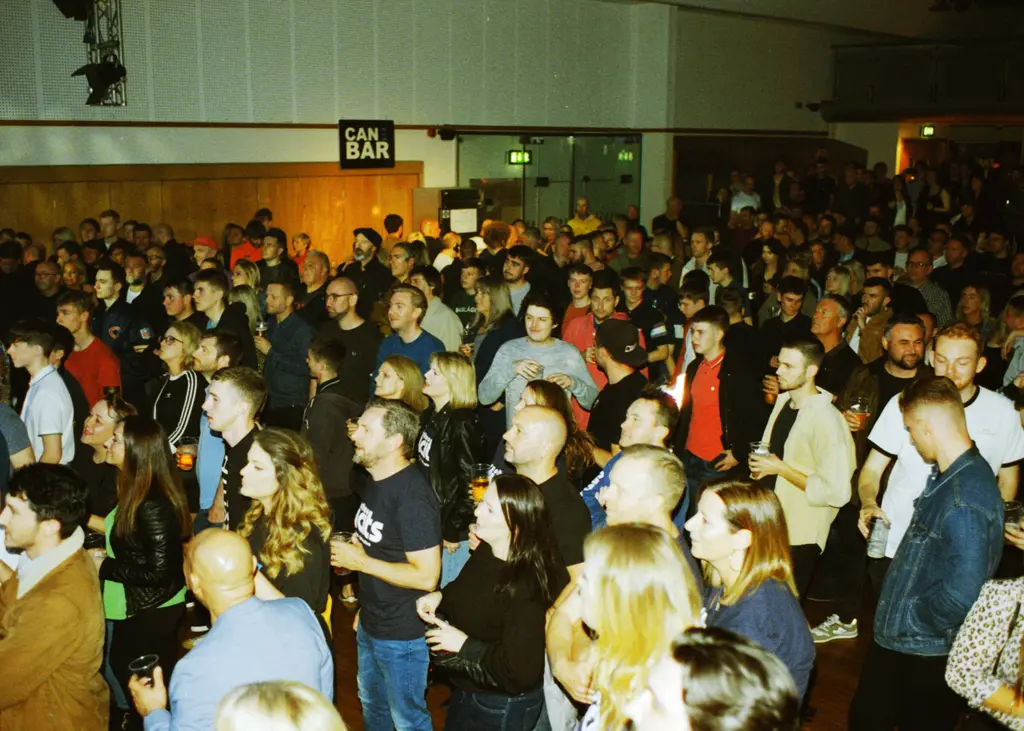Blackburn Ravers

The regeneration game: along with a community of artists, four lads with guitars known as The Illicits are helping reboot their north-west town.
Music
Words: Fergal Kinney
Photography: Juan Ortiz-Arenas
In an airless, strip-lit backstage room in a local theatre, Gary Aspden has something to say about his hometown.
“Even during the Thatcher years, there was still nice clothes shops,” he begins, his portion of chips going chilly in front of him, “and there were nightclubs. People would come on coaches from all over the North. I saw acid house grow from 30 of us in a flat to 10,000 people in a field with riot police.”
In this former mill town in the English north-west, Aspden is known as the design brains behind Adidas’ Spezial collection. A local boy made good in London and beyond, the 49-year-old is now a consultant and brand expert for the company, the latest role after two decades in entertainment and promotion at the German sportswear firm. His job means he’s all over the place, all the time.
But following a divorce, Aspden began returning to the place he left in his early twenties with increasing regularity. This new Blackburn was nothing like the old Blackburn. “What happened?” he asks, rhetorically, genuinely alarmed at the ruinous decline in the Lancashire town’s fortunes.
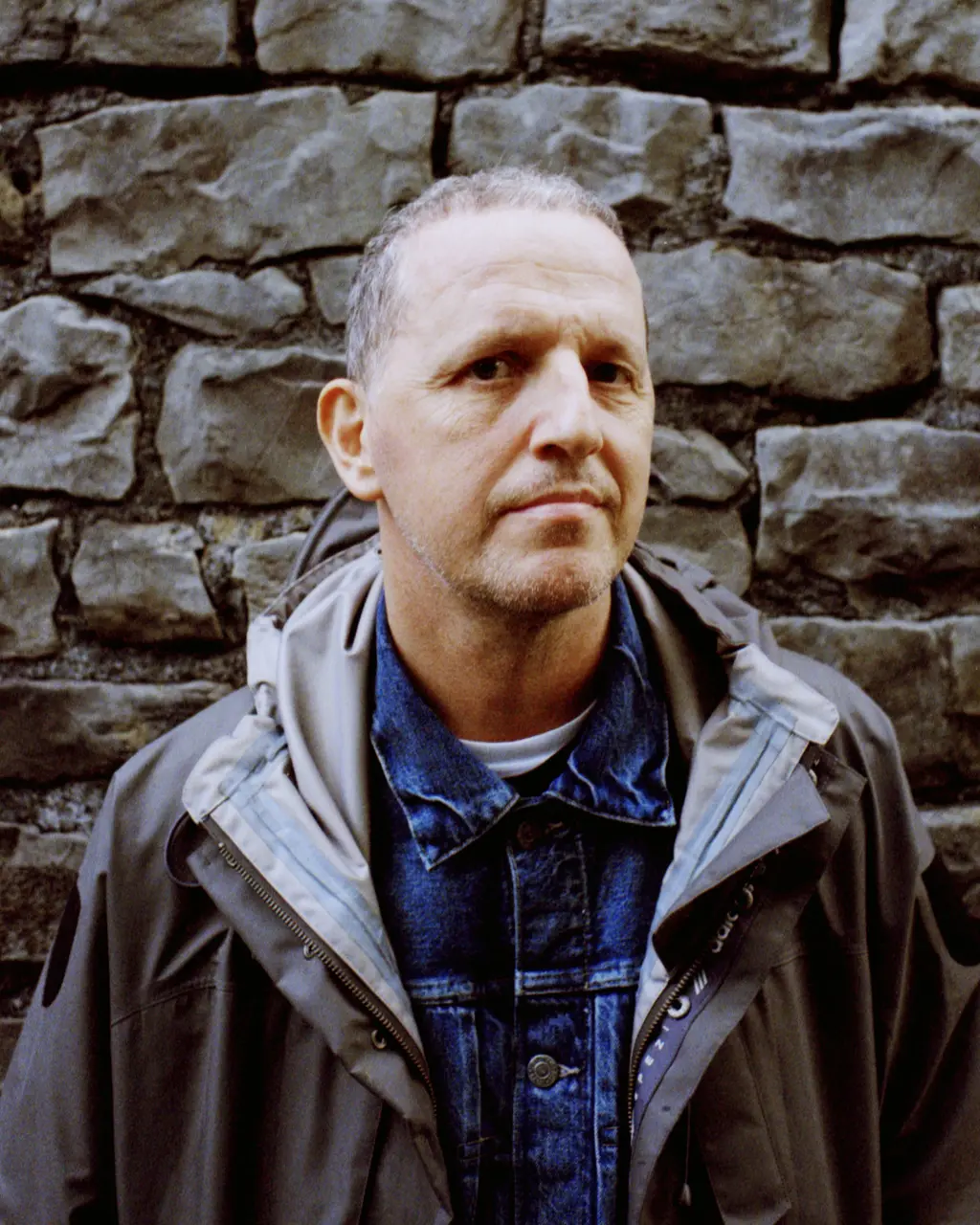
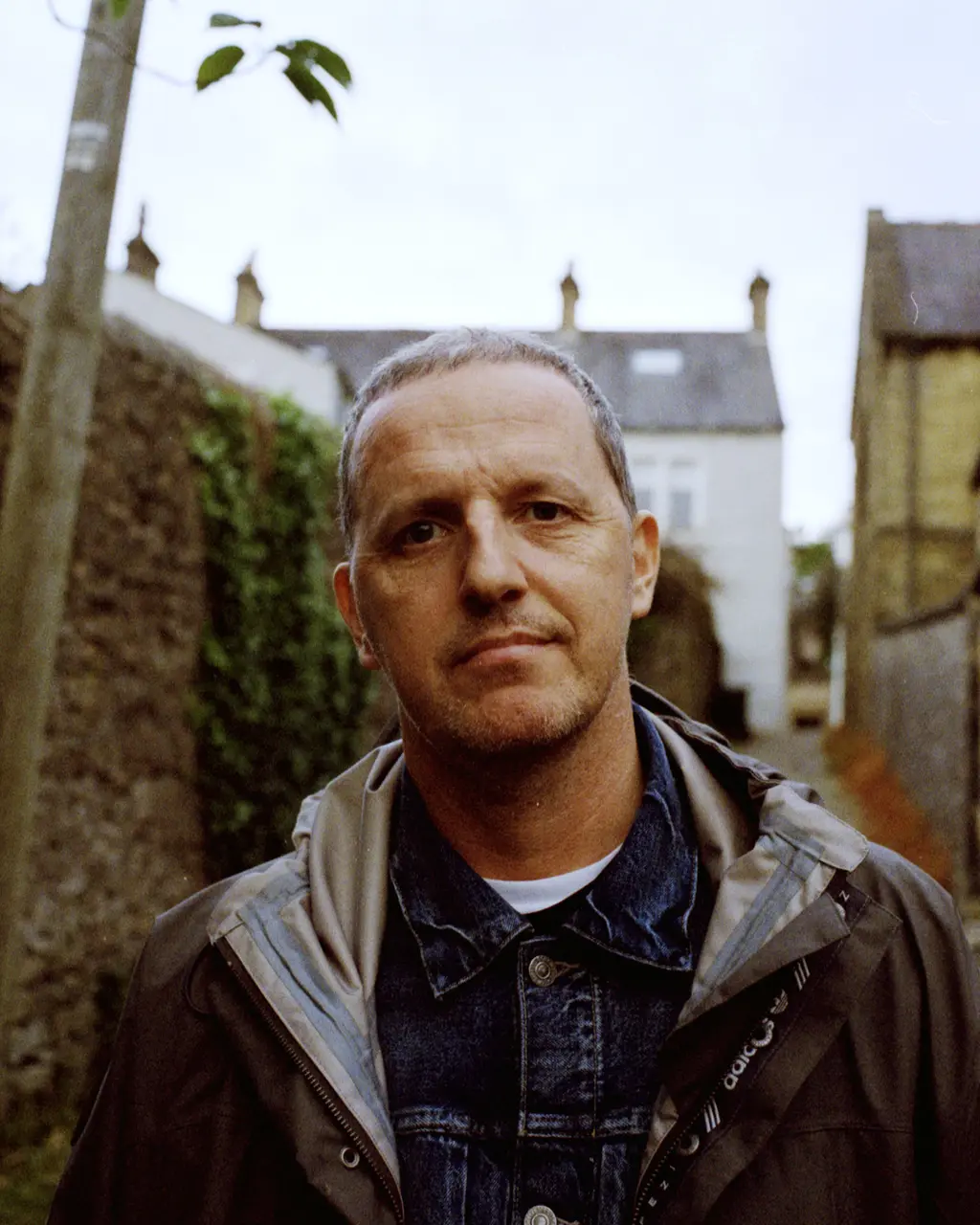
I know what he means. On Friday and Saturday nights in my early teenage years, I would see my brother getting ready to take the short train journey into Blackburn from our home in the yawning suburbs. I’d hear him stumbling loudly back home in the early hours. I burned with envy; too young to get served, too young to be allowed to sample the town’s nightlife. Naturally, I couldn’t wait for the time when I could join the party in Blackburn.
Unfortunately, the start of my own underage drinking career coincided with the financial crash of 2008. Forget those images of bankers in the City exiting shiny offices, box files grasped under arms, highly paid jobs dissolved in an instant. Here in the north, there was a very immediate sense that the party (and a pretty average party at that) was over.
Late night walks between Blackburn’s already skeletal selection of nightspots grew longer as clubs and pubs shut their doors. Soon, me and my mates kept on walking. I left the town shortly after my 18th birthday, and in the years afterwards would oscillate between London and Manchester.
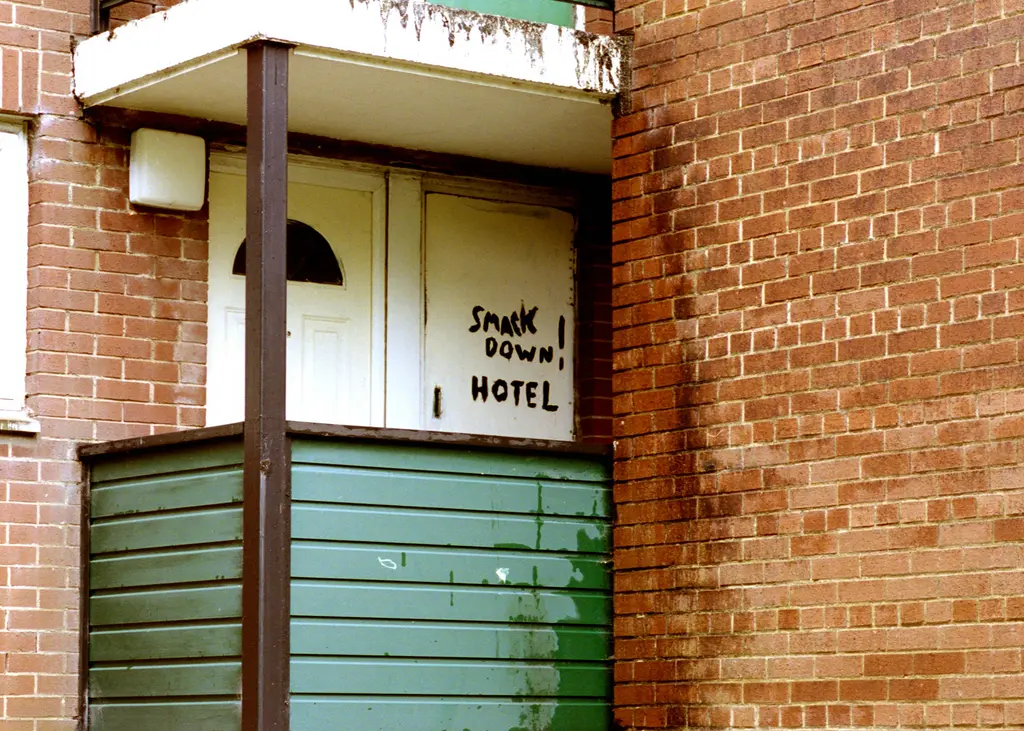
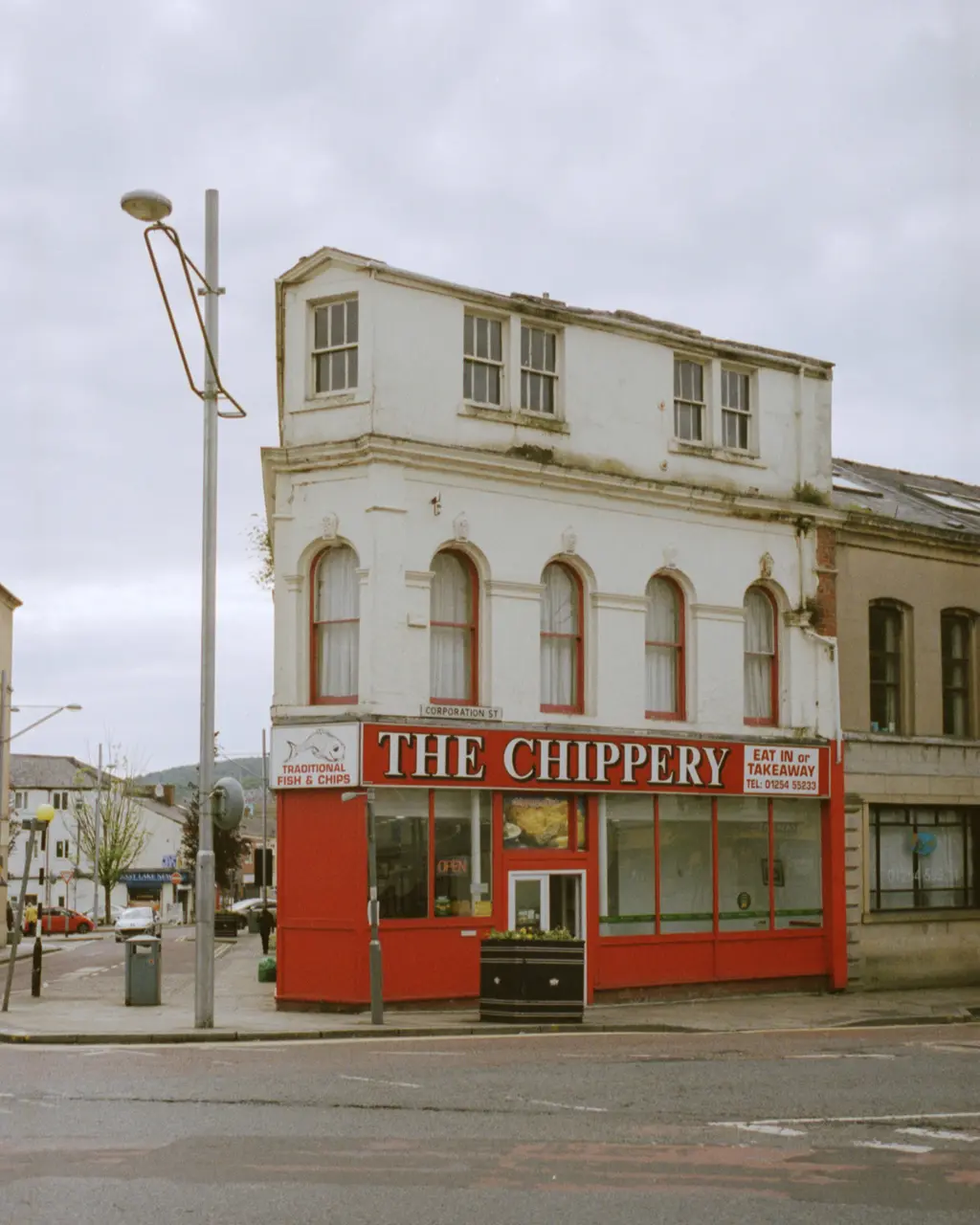
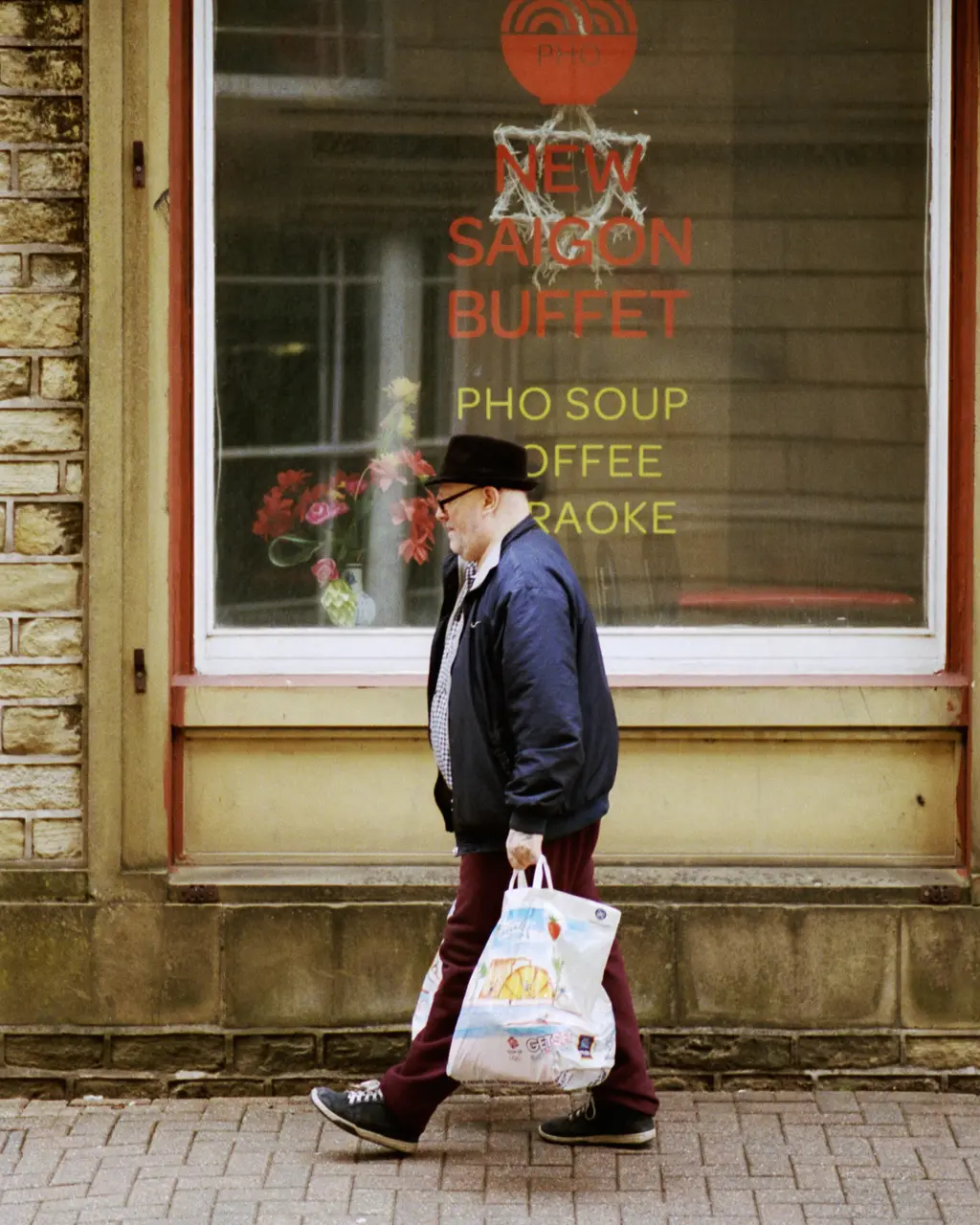
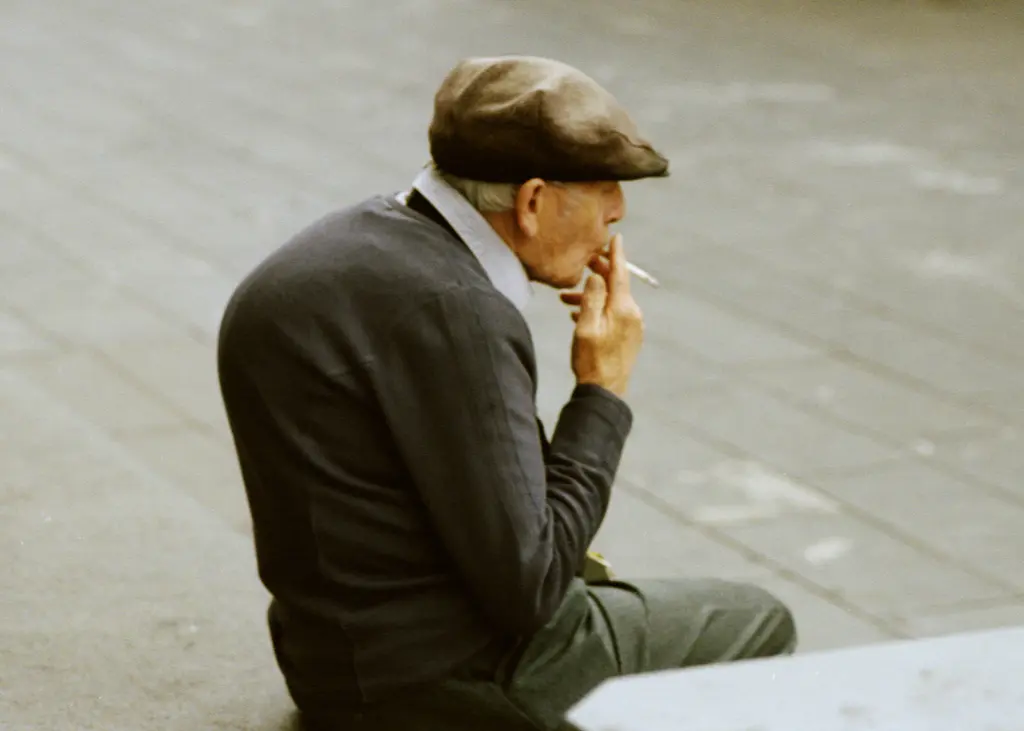
But after a bitingly hard decade for my hometown, something has been rumbling in Blackburn in the last couple of years. In music, arts, entertainment, manufacturing and local politics, people are now daring to imagine a future other than being left to rot as the collateral damage of late capitalism.
Some facts. Lancashire is the seventh poorest area in all Northern Europe. Indeed, nine out of ten of the poorest areas in Northern Europe are in the UK. Shouldn’t this fact be the noisiest crisis in modern Britain? Hotter than Brexit, even, scorching ministerial careers, blazing nightly across the 10 O’Clock News.
Blackburn’s fortunes rose with the Industrial Revolution. At points in the town’s history, near full employment was provided by the cotton and textiles industries. It’s a history visible in the imposing mills that stalk the townscape. Now, of course, they’re long vacant, the cotton having long stopped spinning.
As it did in multiples cities, towns and communities across the UK, Thatcherism took this industrial decline and stamped on the accelerator. (Bizarrely, Margaret Thatcher was Honorary Vice President of Blackburn Rovers FC. Following her death, plans for a minute’s silence were, sensibly, scrapped).
Take a hangover from Thatcherism and add the current Conservative government’s austerity programme, and we’re some way to understanding why half of the children in Blackburn are growing up below the poverty line. Why, between 2002 and 2016, the number of suicides in Blackburn with Darwen (the unitary authority under which the town is governed) was double that of other east Lancashire boroughs. It’s a human cost being passed on from generation to generation.
When the national press covers Blackburn at all, it’s often a story of racial segregation. People of Asian heritage make up 28 per cent of Blackburn with Darwen, concentrated in inner Blackburn. As in Bradford and Oldham, racial anxieties persist, but these have been well documented. There’s another story, one of fightback, that has been missed.
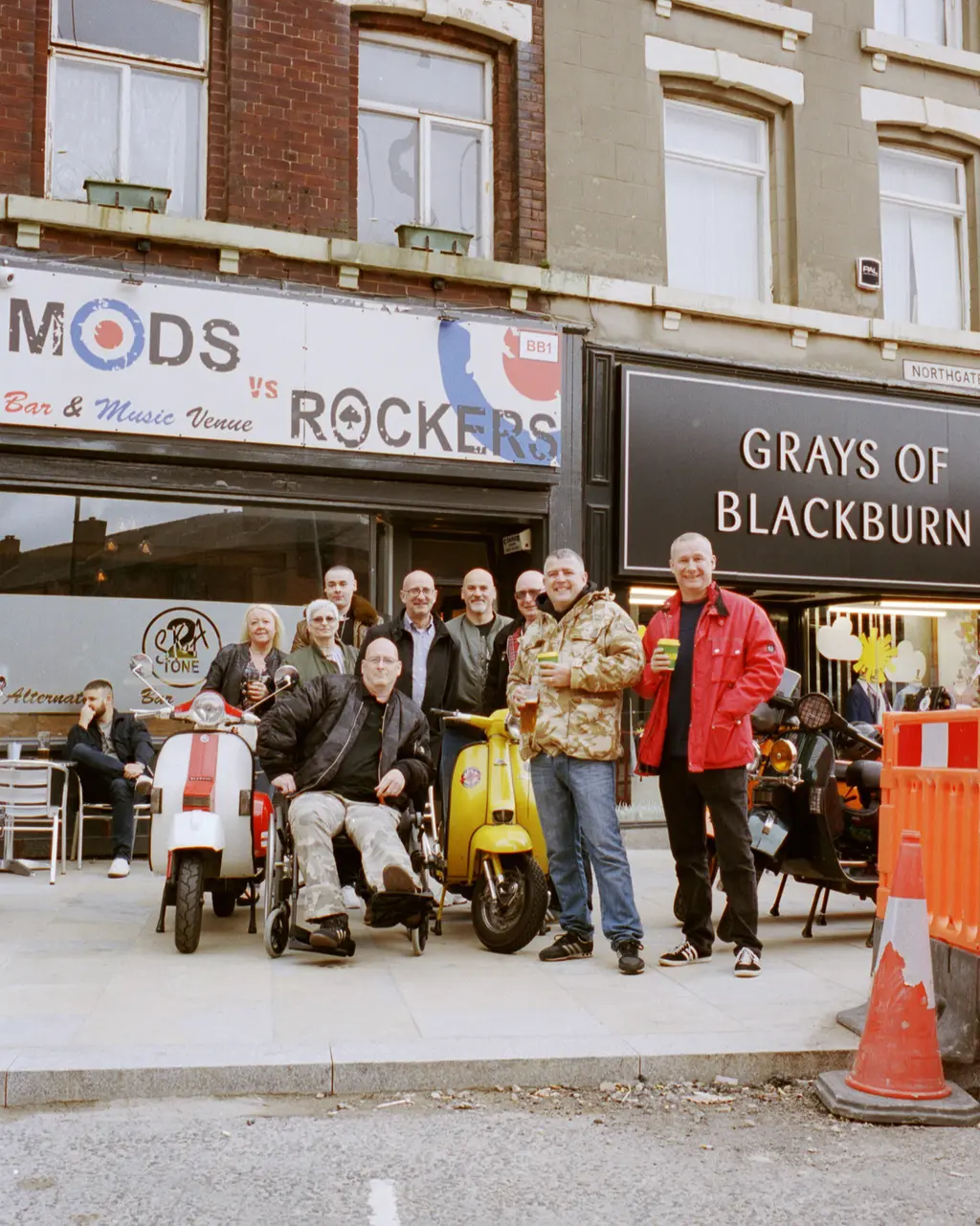
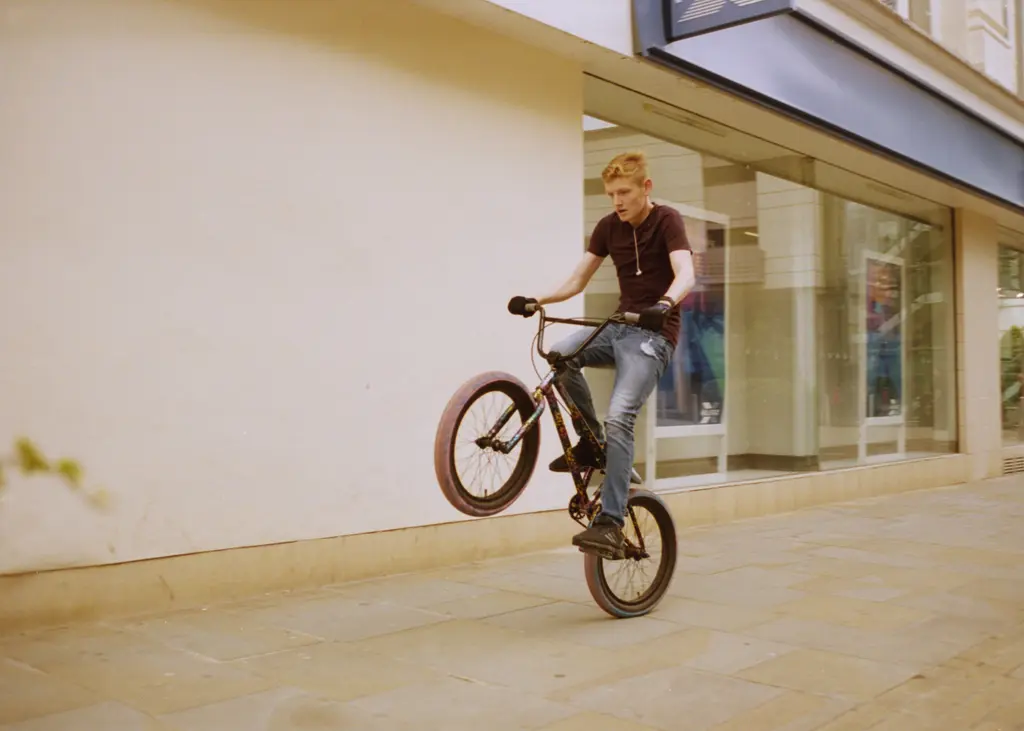
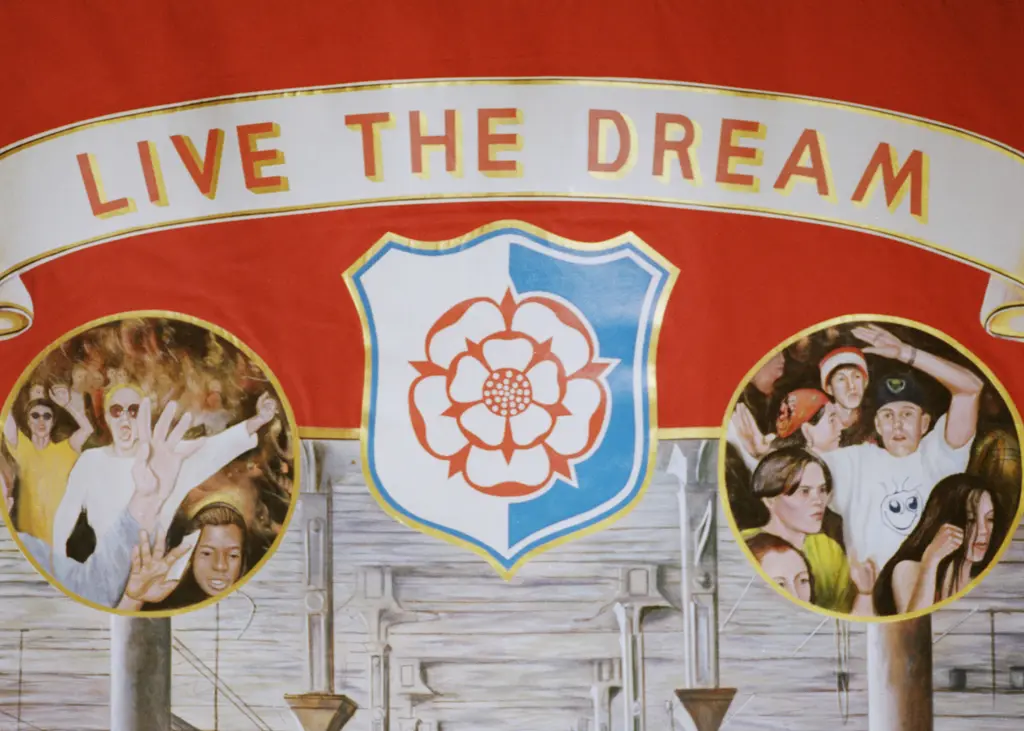
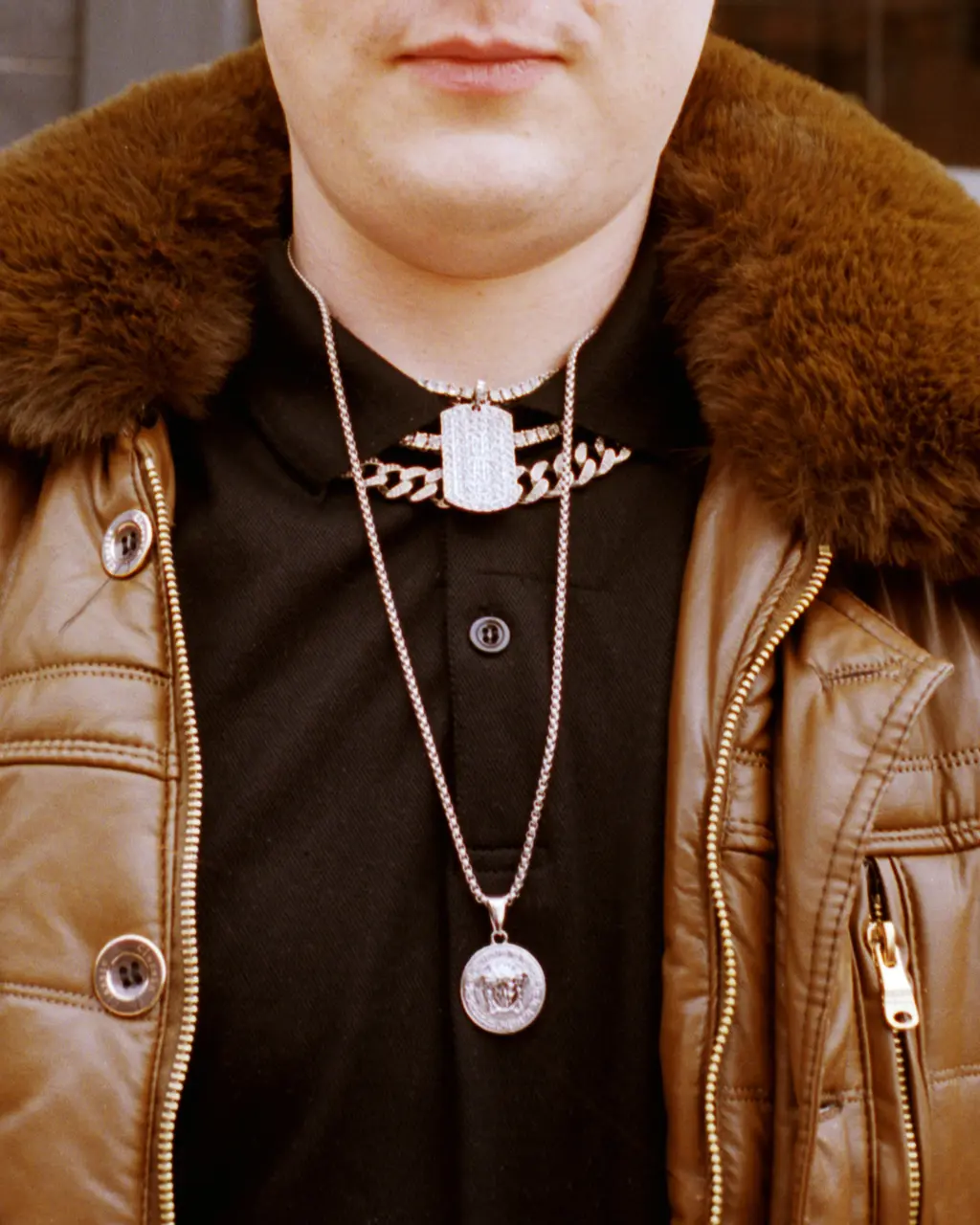
On exiting the train station, the panorama of “modern” Blackburn unfolds in front of me: imposing stone buildings sit sulking in disagreement with the mid-’00s plastic bling shopping centre, bracketed by the new modern British high street – pound shops, vape shops, betting shops, empty shops. Red terraced housing rises vertically to the overcast sky the colour of dishwater.
But to the station’s left is one immediate beacon of hope: the Cathedral Quarter. It’s a popular and tasteful redevelopment of the once neglected area around the town’s 19th century cathedral. Guess where much of the money came from? The European Regional Development Fund. In the 2016 EU referendum, Blackburn voted 56 per cent Leave.
Inside the shopping centre, above the indoor market, is a Nando’s. For two of the staff, if things away from their day jobs continue on their current trajectory, they might not be loading up the peri peri chicken for much longer. George Jones and Joe Mitchell are, respectively, the singer and bassist with The Illicits.
They’re a four-piece guitar rock band from Blackburn who are threatening to become the town’s biggest musical success story since, well, ever. They’ve signed to Creation23, the new label from Creation Records co-founder Alan McGee. The man who, famously, discovered Oasis, and shepherded to success everyone from Primal Scream to My Bloody Valentine, released The Illicits’ debut single. ‘In What World’ is a three-minute siren blast of post-Gallagher rock’n’roll, and it reached Number Four in the Indie Vinyl Charts on week of release.
George, Joe, Brad Hayes (guitar) and Matt Cottram (drums), all aged 22, are childhood friends from Blackburn who bonded over Arctic Monkeys, Oasis and a mutual worship of sportswear-branded football terrace culture. But finding stuff they loved and stuff they had in common, that essential glue for any band, was the easy part.
“Music, football and fashion,” says Blackburn Rovers diehard Brad, outlining the band’s priorities. “When you’re from Blackburn, what else have you got?”
But, after getting together as The Illicits two years ago, they quickly learned that forming a band in Blackburn was far from straightforward. There were no locals with music industry “connections”, no venues to perform in, not even any reliable spaces in which to rehearse.
Still, while the band may not have had much – “up against it” is their catch-all description for their circumstances – they were canny. And they were patient. Eventually carving out a practice space in former commercial premises, they stuck at it for eight months, honing their tunes, their playing, their bond.
Only then were they ready for their first gig. It’s overstating it to suggest that The Illicits arrived fully formed. But, well, almost. No scene? No bother, we’ll make one of our own.
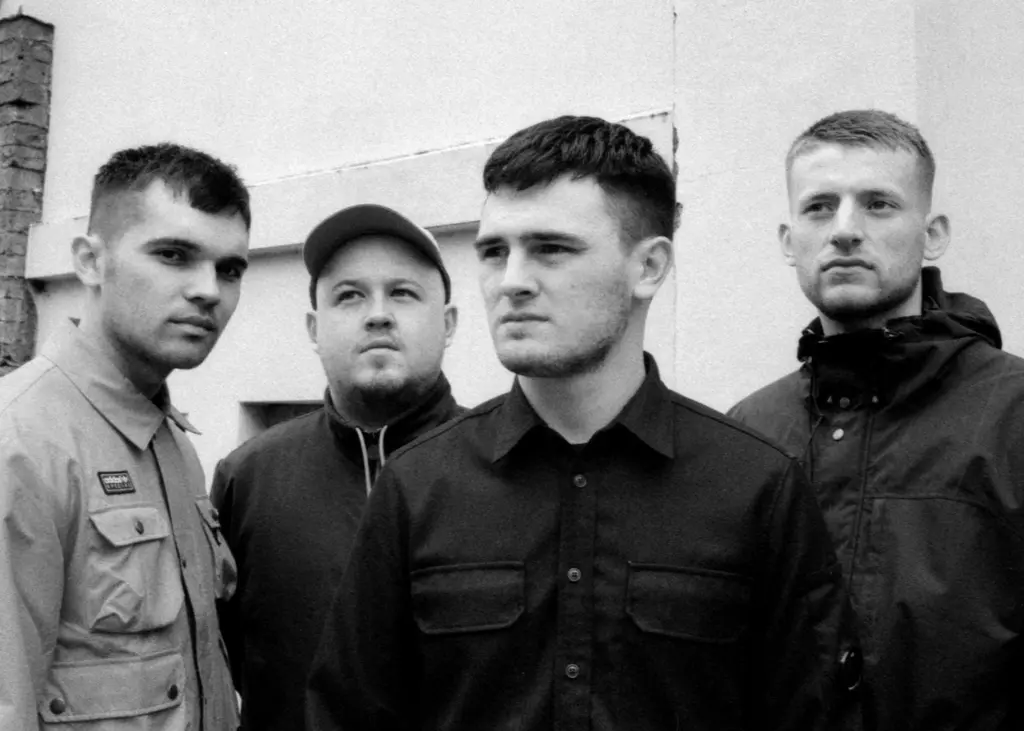
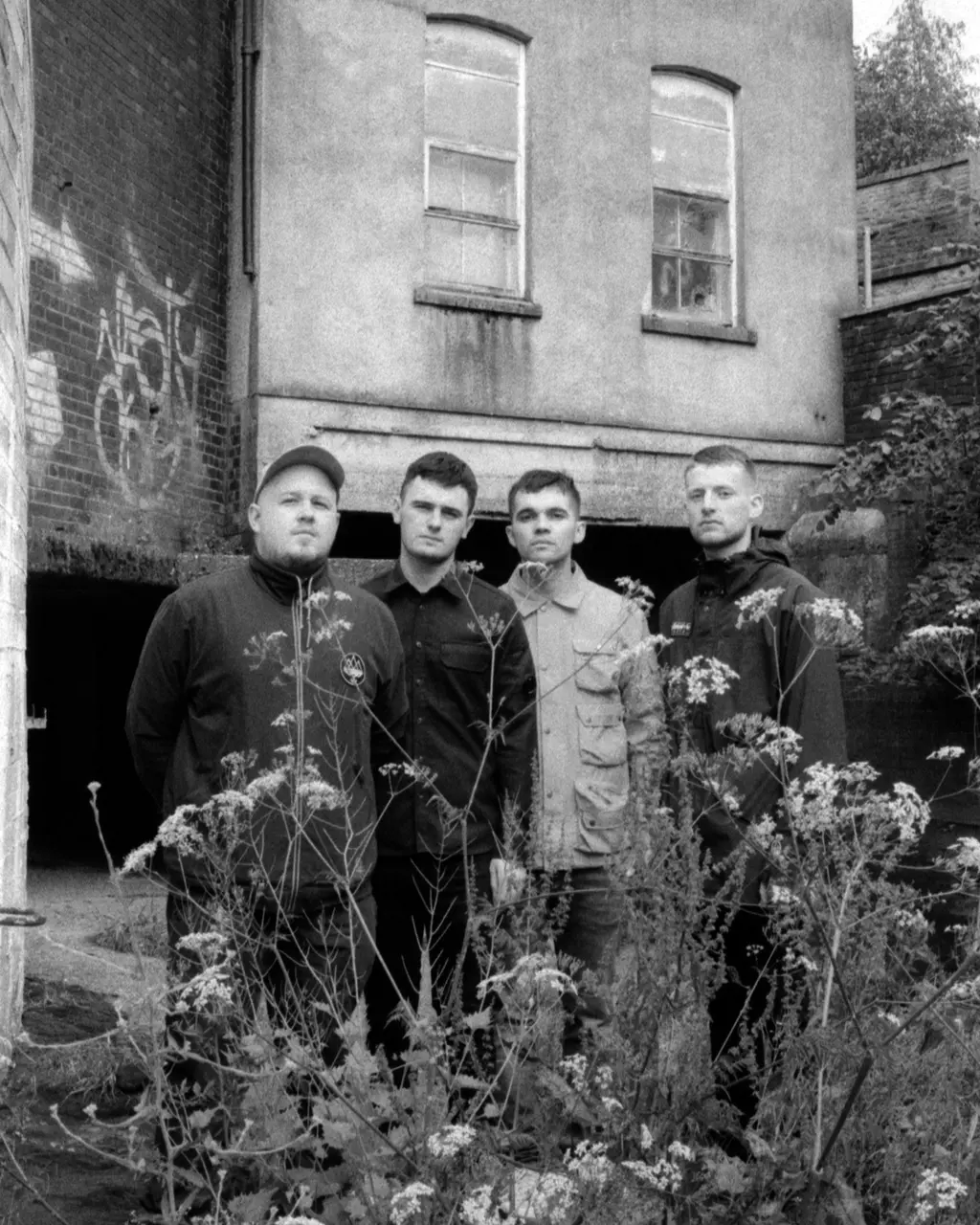
Last year, The Illicits were playing the Sunbird Records bar in Darwen, one of several local venues they’d managed to persuade to book them. Amongst the small the crowd of drinkers and (semi-)interested onlookers, they spotted someone in the audience that they all followed on Instagram. It was Gary Aspden.
“My girlfriend Joanne, she’s really into music,” Aspden tells me. At her urging, he found himself watching The Illicits that Friday night. The band, trainer-spotters to a man, collared him after the show. Aspden, for his part, was struck by the strength of their material, and by the passion with which it was delivered. For him, their straight-up, heart-on-sleeve guitar rock articulated something local, something he perceived to be authentic, something from the heart. Something that didn’t give a shit about what people in the big cities thought was fashionable.
The Illicits’ enthusiasm got him thinking. Could one band of young musicians be part of the answer to the problems of a town hollowed out and gutted – of jobs, hope, young people – over the last 40 years? He agreed to manage the band, even though had no experience of working in the music industry. Fuck it, why not? Let’s give it a go. That’s what The Illicits were doing.
Aspden got in touch with McGee. The Creation man responded like Aspden had responded: quickly, keenly. He asked to watch The Illicits rehearse. Two of the band cancelled holidays to be there for McGee’s visit. A wise move – McGee signed the band that same day.
When I speak to him on the phone, McGee is typically effervescent – not only in his praise for the band but also in his scorn for the media types and genre snobs who deride guitar rock as passé.
“Scotland, Ireland, the north of England, they love rock’n’roll bands,” says McGee. “In London, you’re seen as some kind of right-wing conspiracy theorist Brexiteer if you like rock’n’roll!” he adds with a traditional McGhee-ian, headline-friendly flourish.
For Aspden, The Illicits were the first domino that needed to fall. If he could help build the band, they could build a following, and that could help build a circuit of pubs, clubs, venues – and of excitement. So, working with the band’s newly signed concert booking agents, 13 Artists, they came up with a plan: before going south, let’s concentrate on gigging locally, building this band in the northeast. And to paraphrase a hoary old cliché: if you build it, they will come…
As Aspden said to me with impassioned force: “What the moneymen don’t see, because it can’t be quantified, is that culture drives commerce.”
One person who did see that culture drives commerce was Blackburn-born designer and Red Or Dead founder Wayne Hemingway. In 2017 Blackburn hosted the first nationwide Festival of Making. It’s a two-day arts, design and manufacturing festival organised by a group of organisations led by Hemingway. The 2017 event was a success, but the 2018 event doubled attendance figures and brought real revenue into the town. It’s a successful model for urban regeneration, or for its beginning at least, and Hemingway has rolled out related projects in London and various coastal communities around the UK.
The 2017 Blackburn event was also positioned to act as an aide and spur to integration.
“The Asian population can be insular, they’ll admit it themselves,” Hemingway tells me. “Yet the Festival of Making seems to bring people together, because a lot of the new successful businesses in Blackburn are from the makers community – and a lot of those are from the Asian community. It seems to have brought a commonality. We had an inkling about that,” he admits, “but we didn’t know it would be on the scale that it’s happened.”

Aziza Fozdar, 37
At the far end of Blackburn’s dilapidated high street are The Making Rooms. Occupying an empty retail space, it’s a studio complex and community centre that maintains a shop’s spirit of openness. Anyone can drop in, look around and get booked onto one of their courses or programmes.
I enter a room bustling with silent concentration and creativity: heads down over laser cutters and screen printings, someone standing exasperated over sheets of sculpture design. The most common refrain staff heard from residents when The Making Rooms opened three years ago: “We never get stuff like this round here.”
I talk to Aziza Fozdar, 37, who dropped into The Making Rooms with no background in creativity whatsoever. She tells me that her son attends a school that’s 90 per cent English heritage, and how she was frustrated by his sheepishness at discussing Ramadan and Eid with his classmates. His mum wondered: “What can I do to try and solve that problem?”
At The Making Rooms, Aziza began work on a large wooden Ramadan treat box, which incorporates traditional Islamic design with a concept that’s similar to an Advent calendar. Open a window and each day there’s a message designed to provoke thoughts about life, Islam and community.
“I’m learning every day, and I can’t thank this place enough,” she beams, before taking me over to see her prototype play mosque.
Behind the high street and up the road from the curious institution that is Blackburn’s Club Tropicana (where, sadly, the drinks are not free but three quid), is the Prism Contemporary Art Gallery. It opened in 2017, an innovative and impressive gesture from cash-strapped Blackburn with Darwen council to the local artist community.

Jamie Holman, 45
The site was built as a warehouse for the grain industry, then the cotton industry, and then nothing. “It’s classic Blackburn,” laughs Jamie Holman, 45, an artist central to Prism’s work and mission. “We’ve got lovely buildings but they’re empty.”
Lately, Holman has been creating large banners, inspired by the banner art of trade unionism, showcasing the town’s cultural and political heritage. He’s drawing on the radical history of Blackburn, which stretches from early trade unionists to Danyall Mahmud, the 23-year-old customer services advisor from Blackburn who threw the first milkshake at far-right goon Tommy Robinson in May.
Holman bristles that, while Blackburn was too squeamish about drug and crime associations to celebrate its acid house heritage, Manchester brashly appropriated the whole thing. He points out that Blackburn Rovers was one of the founding Football League teams, and, joining the dots, concludes, “because of that, you get Gary Aspden!”

Emma Colbert, 26 & Lydia McCaig, 21
Emma Colbert, 26, and Lydia McCaig, 21, operate under the name Girls Girls Girls. Working out of Prism, they’re artists and curators who met at Blackburn University. After Prism opened, they had the idea for an exhibition of feminist art centred around International Women’s Day 2018. “It was also a hundred year since some women got the vote,” Colbert adds pointedly.
The pair put out an open call for submissions, receiving over 200 by way of return: film, sound, print, paintings and sculpture submitted by artists located everywhere from Italy to Israel.
“If we’d have started trying to do this in Manchester the result would have been different,” says Colbert, referencing Manchester’s soaring property prices. “But there is such an amazing community of support and practice in Blackburn. Where else would we get given a free gallery? It’s the first time I’ve been really proud to say I’m from this area and wanted to stay permanently. Now I can actually imagine a future around here.”
More than this, the exhibition proved a useful hub and meeting women for women across the community. People would drop in who had never previously thought about feminism, and stay for chats which extended to hours. Be it an Illicits gig or an exhibition of intersectional feminist art, this is what it means for a town to be transformed – and its people united – by art and culture.
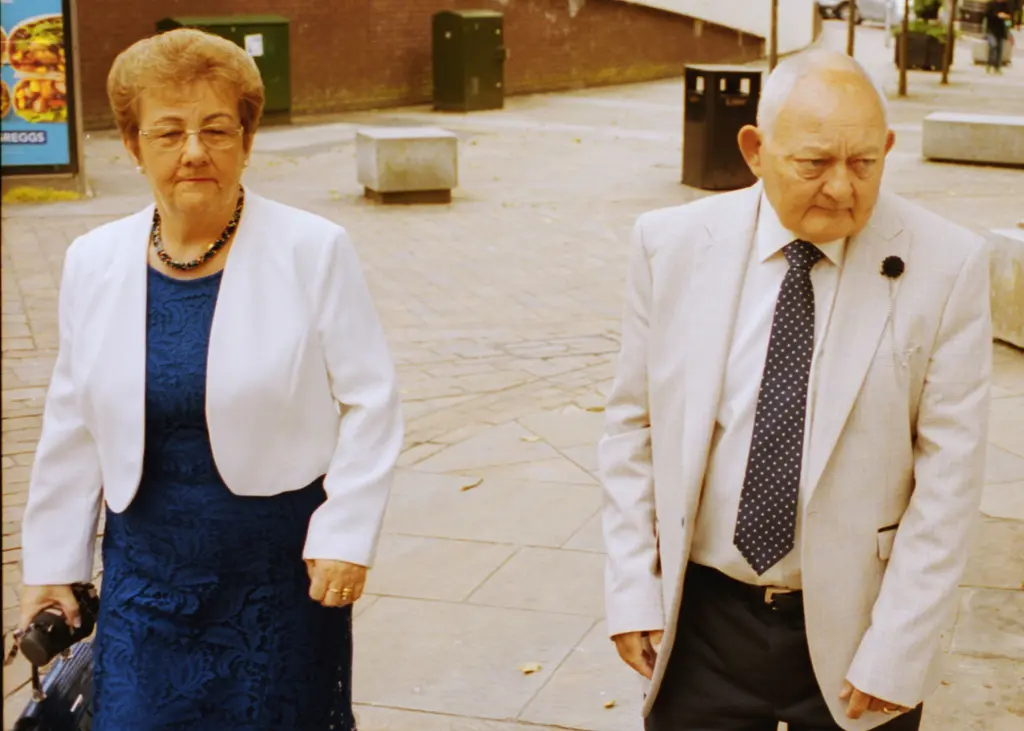
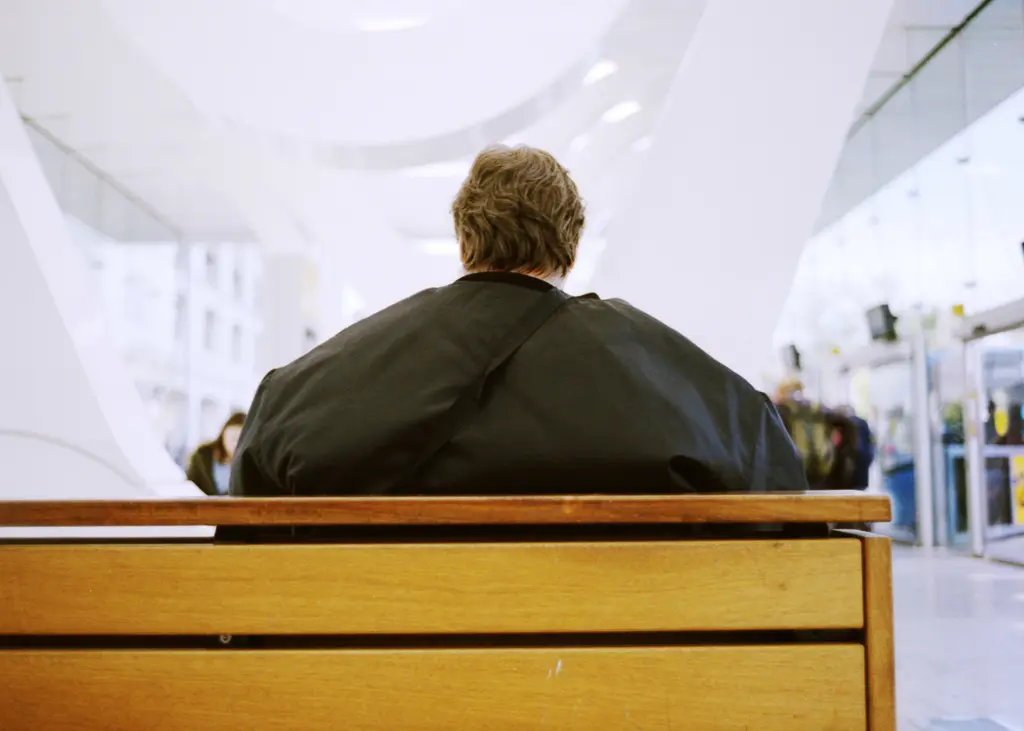
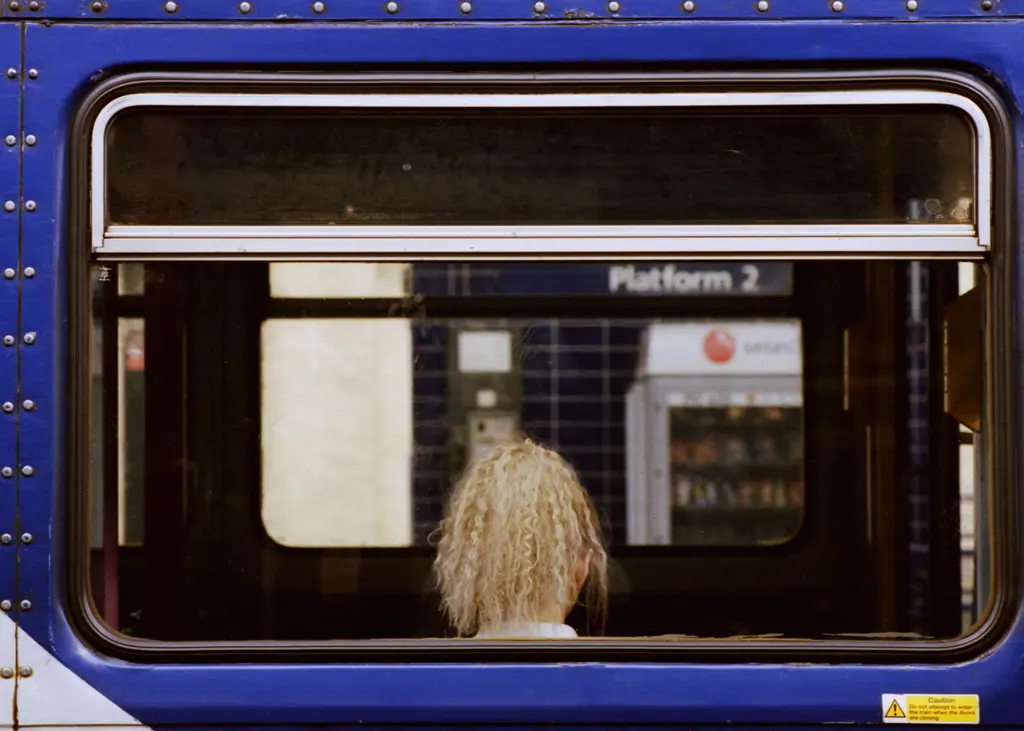
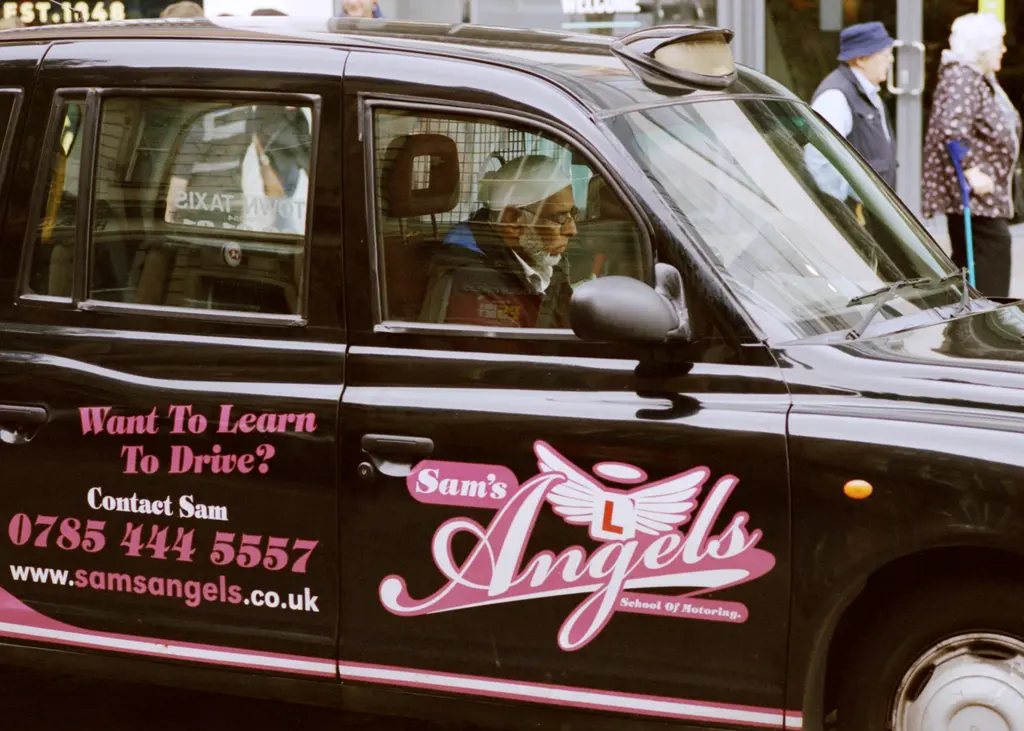
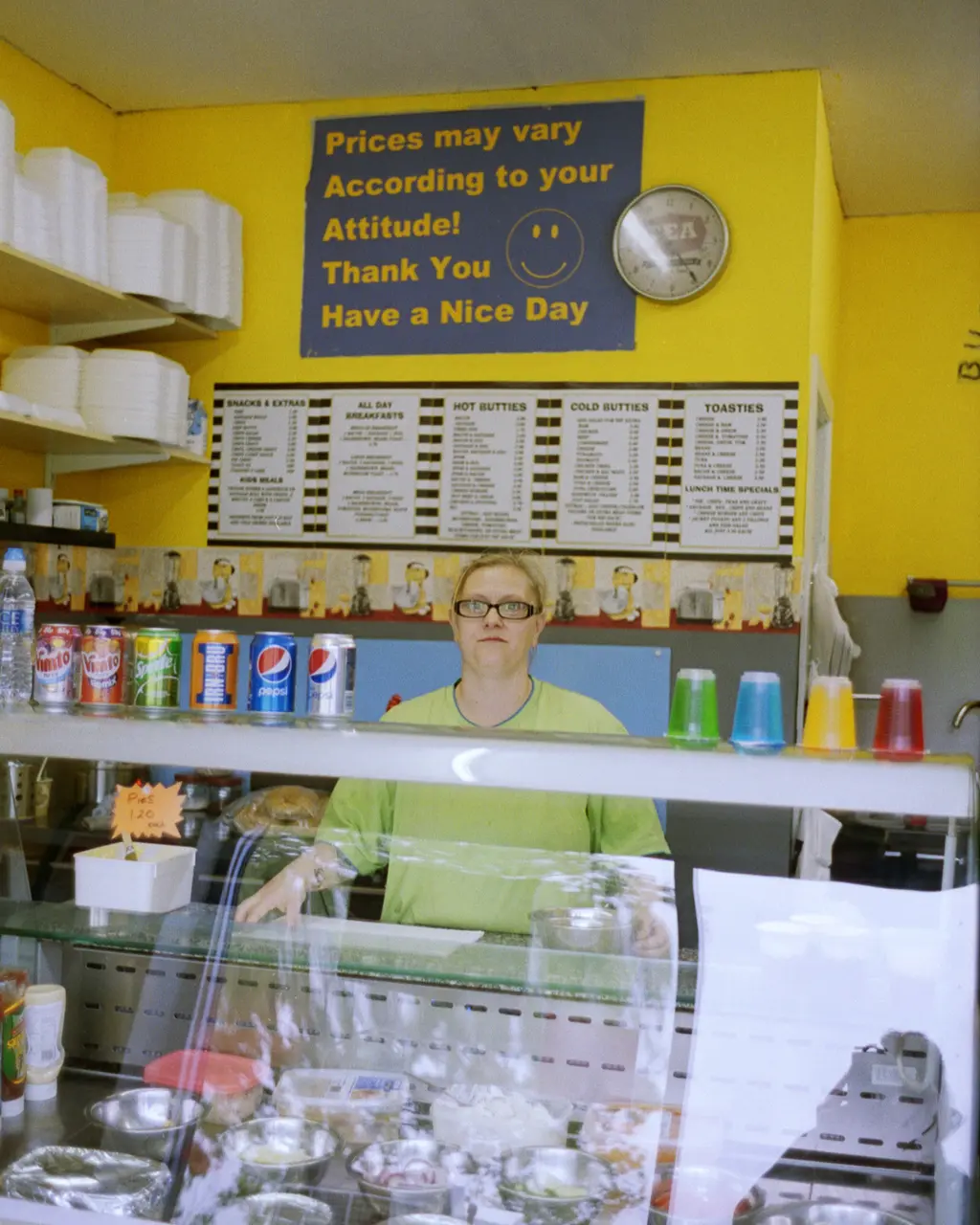
Rebecca Johnson is the Arts and Heritage Manager for Blackburn with Darwen Council. She’s visibly proud of the council’s innovation in handing over space directly to artists.
“We have to think much more cleverly here, and talk about ourselves better,” she says when we meet at Prism. “As a council we can’t run the gallery, so what we have to do is create the space for other people to do it.”
Regeneration being thirsty work, I head for an emergency pint at Blackburn’s cavernous Wetherspoons, The Postal Order – so named after its proximity to the Royal Mail office, which means there’s plenty of postal workers drinking in the pub today. As I leaf through my notes, three pensioners are sat around a table next to me. One is speaking into his phone. “Siri!” he booms in flat East Lancashire vowels, “how did Theresa May end up as Prime Minister?” Even Siri can’t answer that one.

Pete Eastwood, 55
Pete Eastwood, 55, is Blackburn’s most prominent music promoter. Spotting that the traditional format of bands in bars was no longer working for the town, he began putting on shows in Blackburn’s “heritage” buildings. Soon he was selling out shows at the town’s museum, and putting on a two-day festival in a church.
“If you’d spoke to me five years ago it would have been a different story,” he acknowledges. “But in terms of music, art and culture, I’m really positive. There are some great things happening.”
Equally importantly, Eastwood has observed bands helping one another out for the first time, bringing out the best in everyone under tough circumstances.
“A lot of young bands are supporting other young bands. I love it – the fact that one band would watch another, and all that lot would then watch another. It’s great to see!” he enthuses.
Damian Lee, who runs the venue Electric Church, housed in a former nightclub, agrees. He views The Illicits’ success as already having a positive impact on the town’s other bands.
“It’s made a lot of bands think: hang on a minute, people get signed from Blackburn? Let’s get stuck in.”
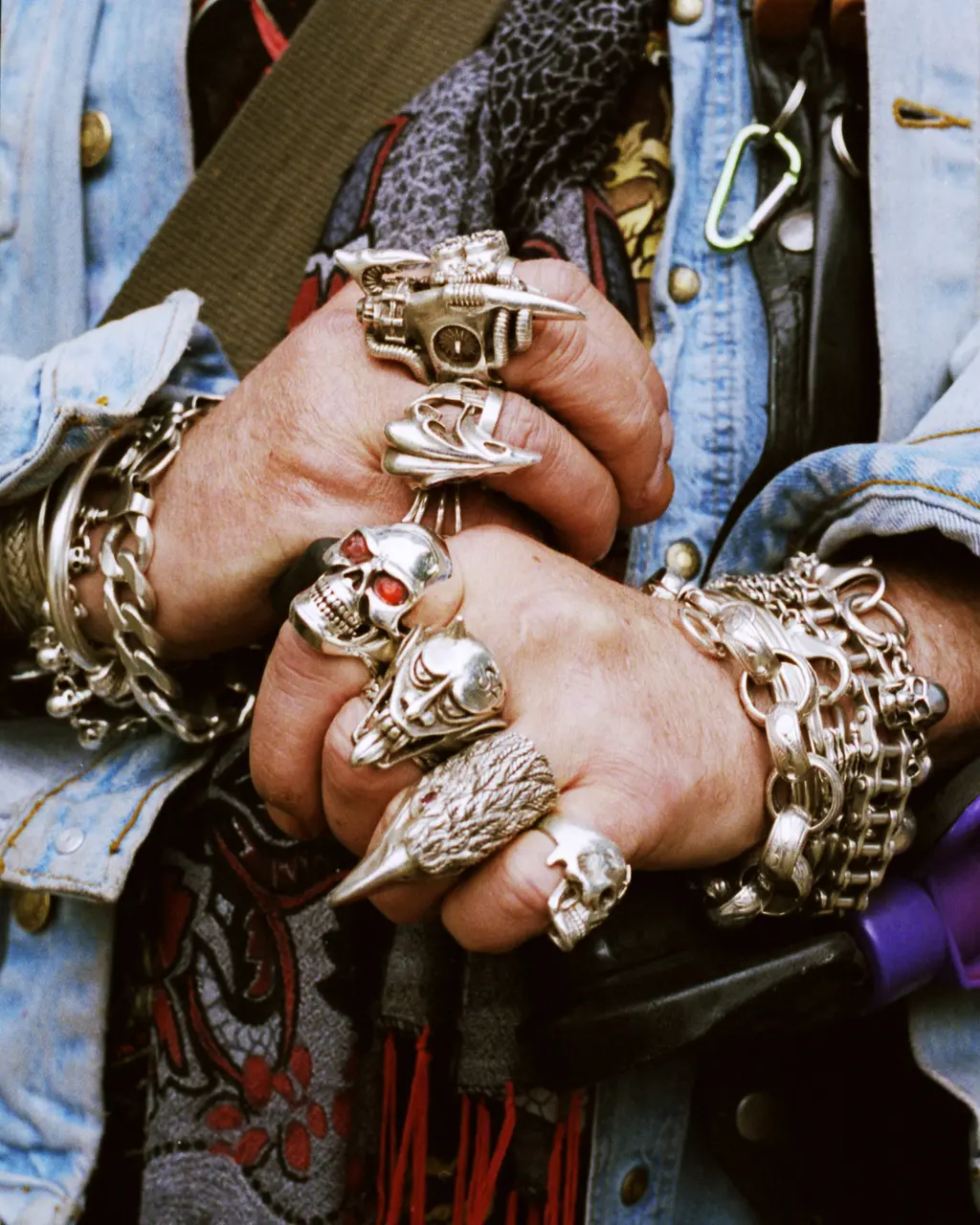
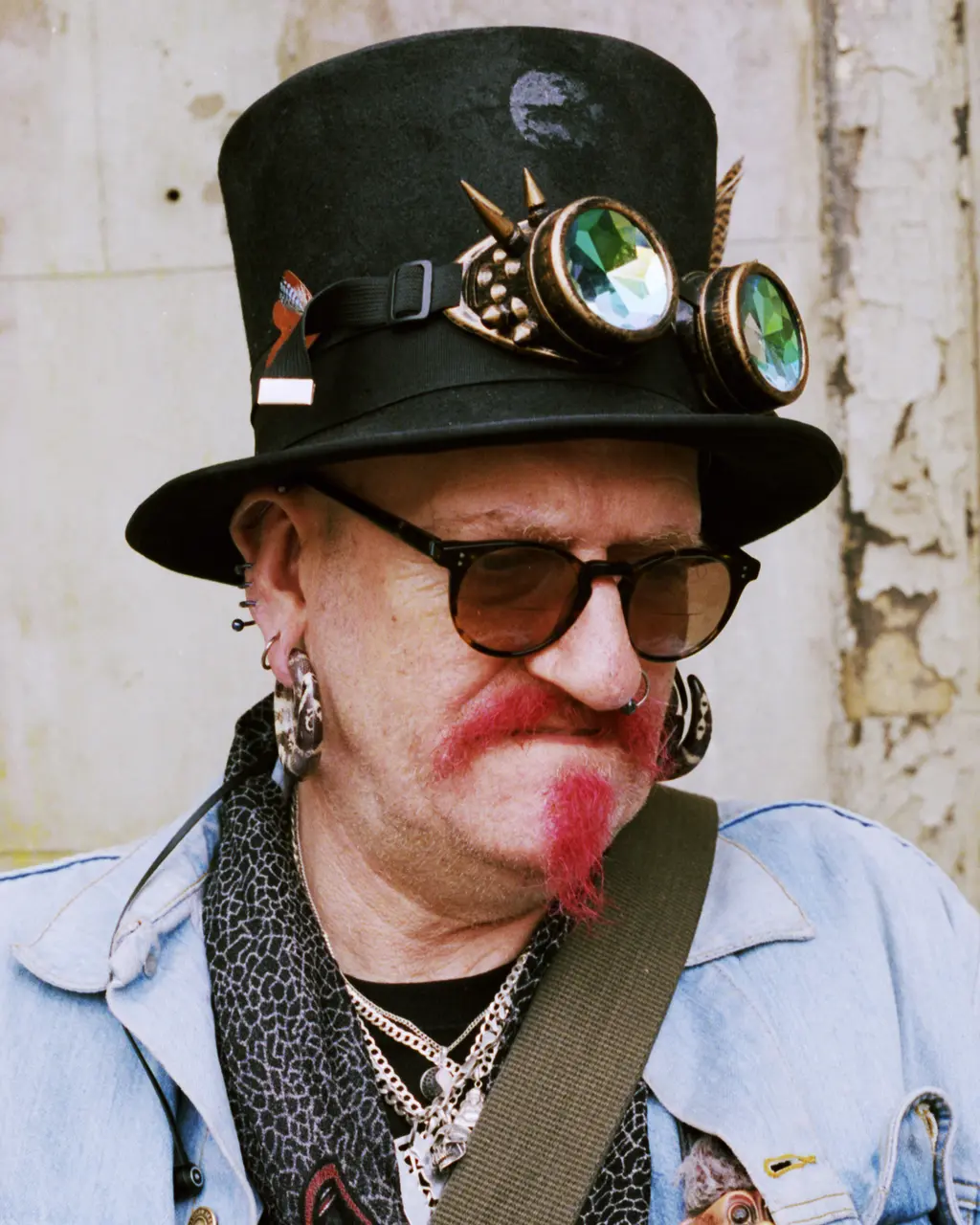
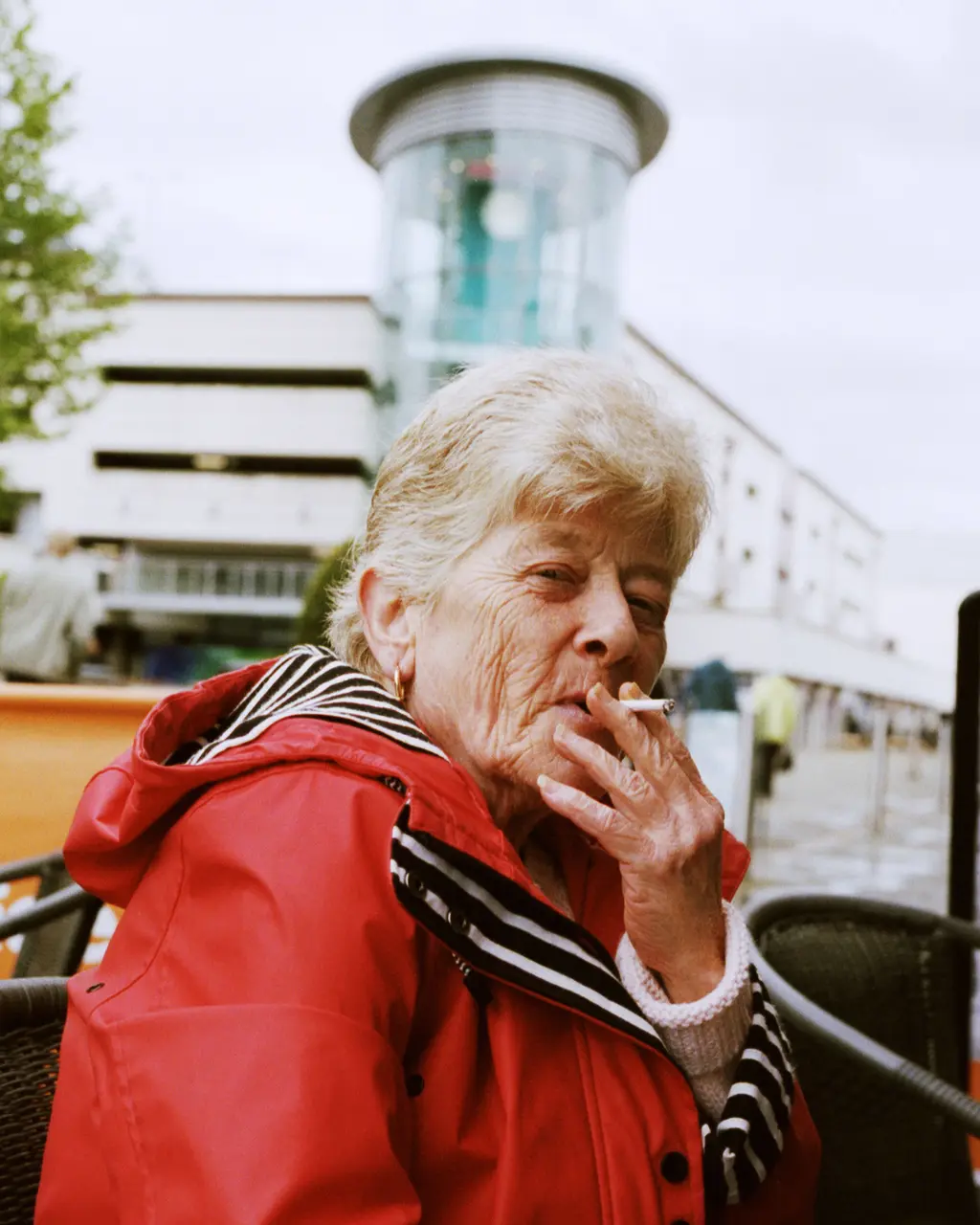
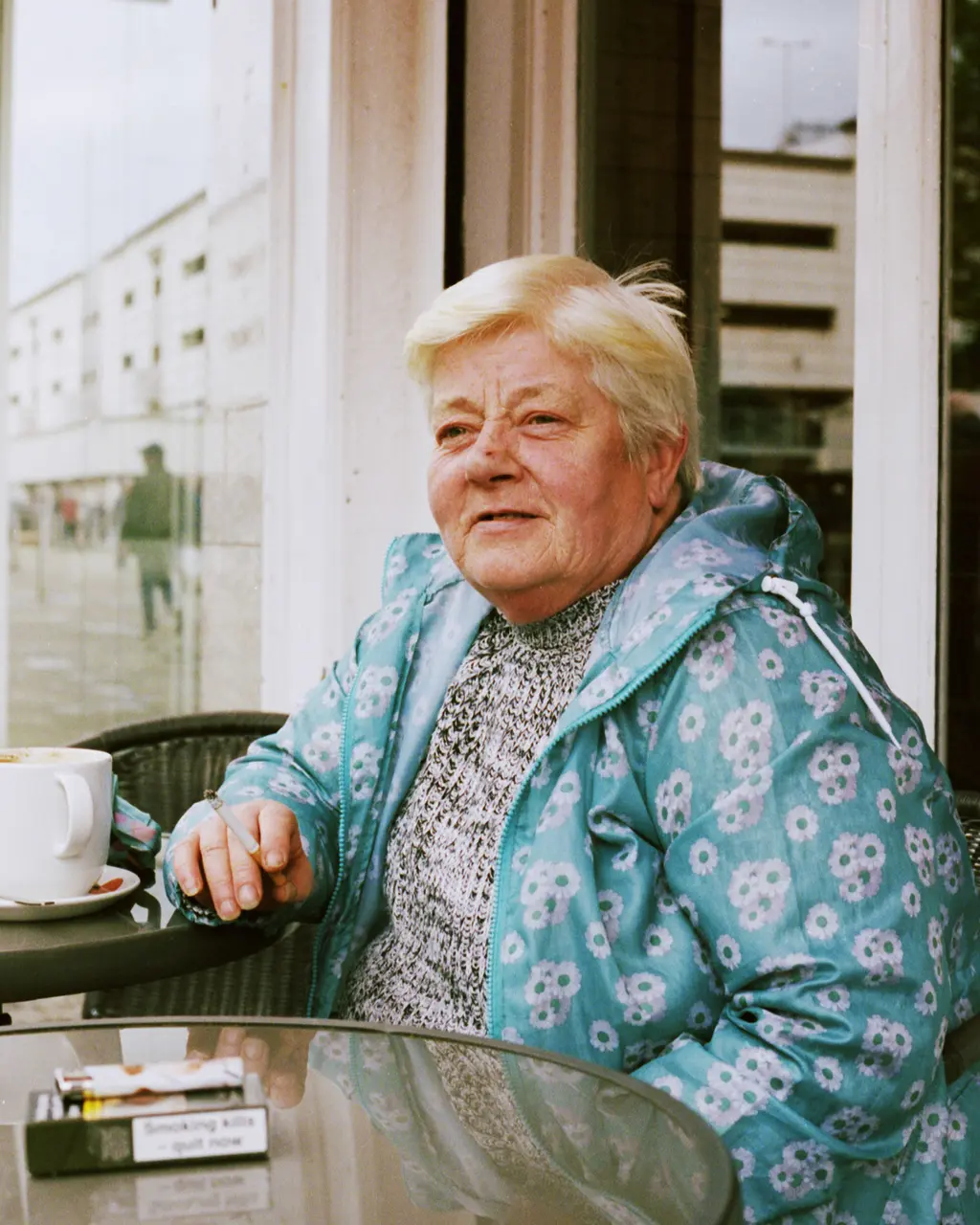
That evening I travel with The Illicits to their show at The Grand Theatre in the sleepy nearby market town of Clitheroe. All 400 tickets sold out in just over a day. The mostly-male audience is almost exclusively the kind of young men that what remains of the music press likes to dismiss as “lad rock” aficionados.
But there’s more at work here. If guitar rock has lost its centrality from the culture, then shouldn’t we consider this kind of British guitar rock fan as a subculture in and of itself? As with all subcultures, it takes place without permission from elites. It has clear enemies to define itself against – “mainstream chart shite” is a label I hear from several of the fans I speak to, and from the stage via tonight’s support act, The Ruby Tuesday. And, like all subcultures, it’s mongrel – a bit of casual culture here, a bit of Mod there, a touch of mid-00s indie, all absorbed consciously and unconsciously.
Again, easy to sneer at. But just in the act of describing their circumstances – and alchemising the shitty day-to-day into uplifting rock’n’roll – these bands are at least able to transcend those same circumstances. Illicits’ singer George is straight-up in his ambition: “We want to sell out stadiums, arenas, right to the top. That’s the dreams and aspirations we’ve had since we started out just playing acoustic guitar in our bedrooms.”
As fans stream out of The Grand Theatre after a thunderous 40-minute set – sweat dripping from their Gallagher haircuts – I’m hard pressed to remember anything from Blackburn generating such pride, such positivity.
“I’d just love people from Blackburn to stop shooting themselves in the foot,” Girls Girls Girls’ Lydia McCaig had said to me earlier, shaking her head in mild frustration. “There’s so much potential here. And it’s on the rise.”
In any community let down and hung out to dry by successive governments, it’s understandable if cynicism comes easier than curiosity. How resignation can come more naturally than hope. But unlike other regeneration schemes, what’s happening here is coming from its people – and it’s time the town took note.
Let’s start shouting about what’s going on in Blackburn. This corner of the North is rising again, and guess what? It’s happening without your permission.
